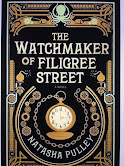Dealing With Distractions: Six Ways to Focus on Your Writing by Theresa Gauthier
The writers I know are a lot like college students during finals week. Struggling to meet a deadline, whether self-imposed or more official, they get distracted from what they should be doing (researching/writing) and instead become immersed in other things. (cleaning out the closet, posting on social media, baking chocolate chip cookies).
Distractions are many and varied. Friends may want to chat or even go somewhere. Family may wonder why you’re holed up in your office or in your bedroom or wherever you like to write.
How do you push through these distractions and stay focused on your work?
It isn’t easy. Writing is a lonely business. Writers have to isolate themselves in order to work. Writing is difficult in a social situation, though writers must interact with and observe people in order to be good at their craft.
Here are some tips to remaining on task and getting your work done while maintaining some sort of social life.
Set up specific hours/days to write. This may be difficult at first. You need to stick to your plan and not be tempted to alter it at the first sign of missing out on something. If you decide you write best in the morning, and then you realize your friends are getting together for breakfast, you need to remember that your work has to get done. Yes, you’ll miss out, but perhaps reminding your friends of your commitments, you’ll fine they’re willing to change their plans to accomodate you. Perhaps you can arrange your schedule around regular, planned activities. For instance, if you know your family likes Friday night as a game night or pizza night, or your best friend really enjoys meeting you for drinks on a Friday during Happy Hour, try to build that into your writing schedule. If you know a holiday is coming up, it’s fine to take an unscheduled day off, but remember that you did it, stick to it, and don’t feel guilty about it later.
Create a space that encourages and inspires you. Having the right workspace is vital. If you can’t work unless you’re sitting in a comfortable chair, then you need to make sure you have one. If you can only write when you have your own laptop, make sure it’s set up and charged. If you need to have absolute silence to write, make sure there are no radios, televisions, phones, MP3 players, and you’ve blocked your favorite music streaming service. Maybe you work best with a great view. Work outside. Work by a window. Whatever keeps you inspired and keeps your ideas flowing is the right way to go.
Disconnect. Many computers or apps or even writing programs allow you to block or otherwise isolate your computer so that you aren’t tempted to dive headlong down the rabbit hole of social media or internet shopping or even research—whatever you’re prone to embrace in lieu of your work. Take it a step further. Switch off your phone. Disconnect your wifi. (But I need my wifi for research!) Just switch it off for a short time so you can focus. Make note of what you need to research and do it later. The important thing is to crank out those pages. You’re working on a draft. Tweaking, editing, and rewriting can come later.
Join a Writing Group. Writers need to talk about writing. A writer’s group will allow you to form friendships among those who are in the same or similar situations to your own. It’s uplifting to be able to communicate with people who share your love of the craft and who may just inspire you. Try libraries, bookstores, or internet groups. There’s no reason you can’t join several. It may be that the expectation of sharing your work at a group meeting will keep you writing.
Learn to say no. The hardest thing for some people is just saying no. We sometimes torture ourselves and agree to things we really don’t want to do because we just can’t bring ourselves to say no. If agreeing to do something because someone’s asked you to do it is going to drag you away from your daily goals, just don’t agree. You don’t have to accept every invitation, every phone call, every casual suggestion. If you can’t talk because you’re writing, don’t feel bad about it. Leave a message for incoming calls that you’re busy but will get back to the caller later. Tell your best friend that you’d love to meet, but suggest you do it another day. It’s not a bad thing to grant yourself the time to follow your dream.
Don’t forget that you can’t isolate all the time. We are social animals, even those of us who are introverts need a certain amount of interaction with others. Schedule it if you need to do that. Make sure you allow yourself time to unwind, to laugh, to forget (for awhile!) about the passage on that article you should be editing or the plot twist you just can’t seem to get right in your novel. Such socialization could even cure your writer’s block.
In reality, it’s never a simple thing to carve out the time you need to write. Many of us will continue to combat feelings of guilt for turning people down or not accepting calls and feeling of frustration for not following through with a commitment to ourselves to write. There’s never going to be a perfect balance, but with persistence and attention, we can find the time we need to write.







Comments
Post a Comment